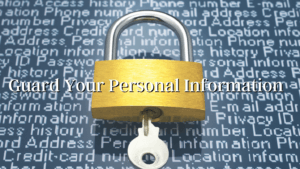
In the wake of a data breach at a credit bureau, you may be wondering what to do if a credit bureau is hacked. While it’s certainly a cause for concern, there’s no need to panic. There are steps you can take to protect your credit and your identity. Here’s what you need to know.
What Is a Credit Bureau?
A credit bureau is a financial institution that collects data on individuals and businesses for the purpose of credit reporting. The three major credit bureaus in the United States are Equifax, Experian, and TransUnion. These bureaus maintain files on everything from your credit history to your employment history to your rental history.
What Happens if a Credit Bureau Is Hacked?
If a credit bureau is hacked, the personal information of everyone in their database is at risk. This information can include social security numbers, addresses, birthdates, and more. Hackers can use this information to open new lines of credit in your name, apply for loans, and even commit tax fraud. In short, a hack of a credit bureau can have serious consequences for everyone involved.
Your Credit Score Is not at Risk
First and foremost, it’s important to keep in mind that your credit score is not at risk if a credit bureau is hacked. Your credit score is a numerical representation of your creditworthiness and is not stored at any of the three major credit bureaus (Equifax, Experian, or TransUnion). So even if hackers were to gain access to your credit report, they would not be able to alter your credit score.
Place a Fraud Alert on Your Account
That said, there are still steps you should take to protect your credit report — and by extension, your identity — in the event that a credit bureau is hacked. The first step is to place a fraud alert on your account. This notifies potential creditors that you may be the victim of identity theft and that they should take extra steps to verify your identity before extending credit in your name.
You can place a fraud alert by contacting one of the three major credit bureaus; once you do, that bureau notifies the other two bureaus on your behalf.

Freeze Your Credit Report
Another step you can take is to freeze your credit report. This prevents anyone from accessing your credit report — including both legitimate creditors and fraudulent ones. You can freeze your report at all three bureaus simultaneously or individually.
If you choose the latter option, just be aware that freezing your report at one bureau does not automatically freeze it at the others. There is usually a small fee associated with freezing (and unfreezing) your credit report, but many states offer waivers for victims of identity theft.
Watch for Suspicious Activity
Last, keeping an eye on your accounts and statements for any suspicious activity is important. This includes things like withdrawals or charges you don’t recognize as well as unauthorized changes to personal information, like your address or phone number. If you see anything out of the ordinary, don’t hesitate to contact your financial institution or file a police report.

Guard Your Personal Information
Be vigilant about guarding your personal information. This means being careful about who you share your Social Security number, birth date, and other sensitive information with — both online and offline. And only do business with companies with strong security measures to protect this information.
Additionally, make sure to use unique passwords for all of your online accounts and never click on links or attachments from unknown senders.
Conclusion
If a credit bureau Is breached, it’s important to take action to protect yourself from fraud and identity theft. Luckily, there are steps you can take to safeguard yourself. From placing a fraud alert with the major credit bureaus to keeping an eye on your accounts for suspicious activity, there are plenty of ways to help minimize the risk—so breathe easy and don’t panic!
No one wants to be a victim of credit fraud, but if it happens to you, it is important to take action immediately. If you have questions about how to place a fraud alert or what steps to take next, give Mortgage Works a call at 1-877-871-2400. Or visit our website for more information. We are here to help you get your life back on track after identity theft or credit fraud.

